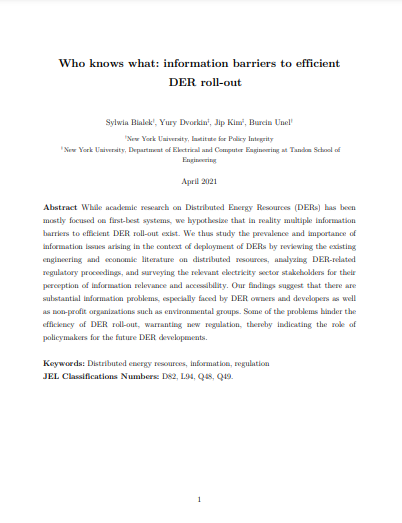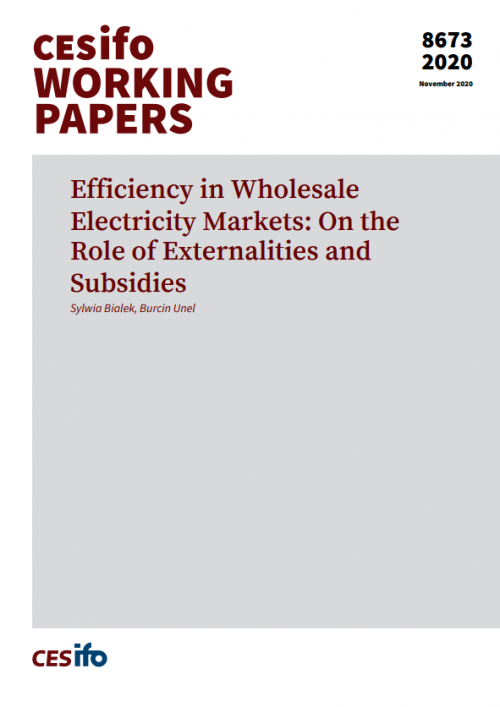-
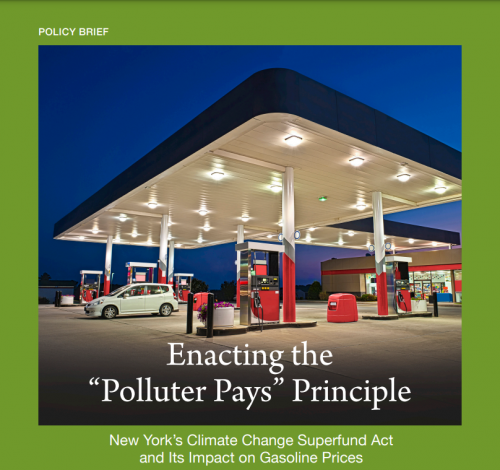
Enacting the “Polluter Pays” Principle
New York’s Climate Change Superfund Act and Its Impact on Gasoline Prices
This policy brief analyzes how New York State’s recently proposed Climate Change Superfund Act is most likely to affect consumer gasoline prices. The Act would require payments from fossil-fuel companies based on their historical contributions to current greenhouse gas levels in the atmosphere. The payments would be used to build green infrastructure to help the state adapt to climate change. The brief finds that the Act would likely have a negligible impact on current and near-term oil prices, while potentially lowering future energy prices in New York, including for transportation.
-
Who Knows What: Information Barriers to Efficient DER Roll-Out
Published in International Association of Energy, Environment and Economy Journal
While academic research on Distributed Energy Resources (DERs) has been mostly focused on first-best systems, we hypothesize that in reality multiple information barriers to efficient DER roll-out exist. We thus study the prevalence and importance of information issues arising in the context of deployment of DERs by reviewing the existing engineering and economic literature on distributed resources, analyzing DER-related regulatory proceedings, and surveying the relevant electricity sector stakeholders for their perception of information relevance and accessibility.
-
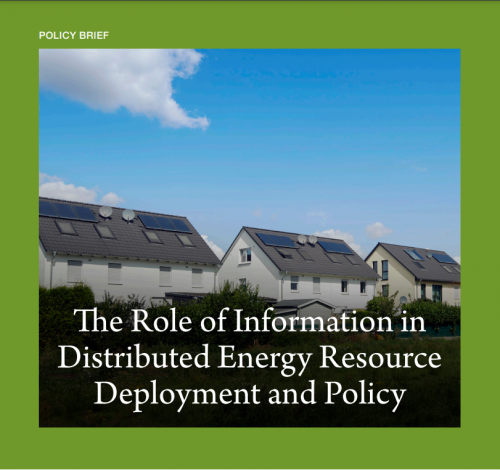
The Role of Information in Distributed Energy Resource Deployment and Policy
While appropriate compensation for DERs has received considerable attention in DER policy discussions, one important dimension has received less attention: informational gaps and asymmetries. In particular, key information about distribution networks, energy consumption, and marginal emission rates is often either entirely lacking or readily available only to some parties. Such information disparities can impede effective policymaking. To overcome the inefficiencies information asymmetry creates, regulators must carefully tailor disclosure mandates and incentives for utilities, as these actors often have little incentive to go beyond the letter of the law in data disclosure.
-
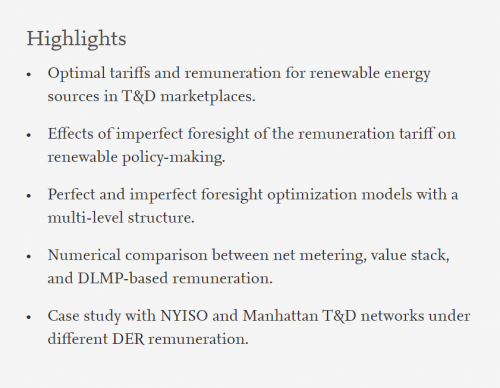
Impact of Imperfect Foresight on Optimal DER Deployment, Remuneration and Policy
Published in Applied Energy
This paper proposes a decision-making framework to optimize electricity tariffs and remuneration policy for renewable energy sources operating in transmission- and distribution-level (T&D) marketplaces. The authors develop perfect and imperfect foresight models with a multi-level structure to investigate the effects of the inability of actors to correctly predict future remuneration on the efficiency of the decisions made by policymakers.
-
Efficiency in Wholesale Electricity Markets: On the Role of Externalities and Subsidies
Published in Energy Economics
In our article published in Energy Economics, we use economic modeling to analytically show the relationship between generation subsidies and energy and capacity markets. We show that the feared capacity price suppression can happen only under limited circumstances and that in the short-run, the subsidies will tend to increase capacity prices. We also demonstrate that while subsidies cannot produce the first-best outcomes, there exists a range of welfare-enhancing subsidy rates and designs that improve welfare, such that regulators should think of subsidies as one of the tools available for increasing electricity market efficiency.
Viewing all publications in Electricity

